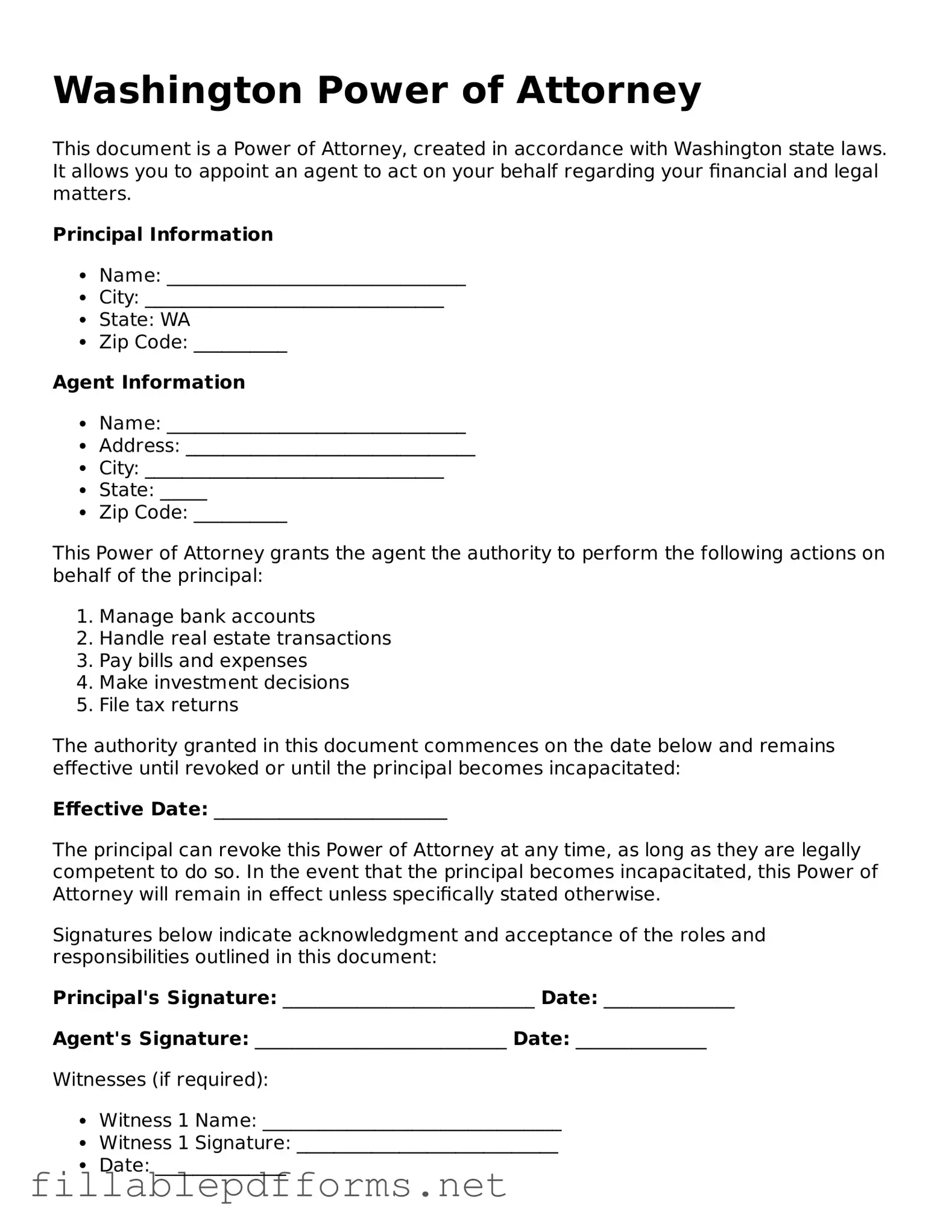Attorney-Verified Power of Attorney Form for Washington State
A Washington Power of Attorney form is a legal document that allows you to designate someone else to make decisions on your behalf, particularly in financial or medical matters. This powerful tool can provide peace of mind, ensuring that your wishes are respected when you cannot communicate them yourself. Understanding its importance and the process of creating one is crucial for safeguarding your interests.
Launch Editor Here

Attorney-Verified Power of Attorney Form for Washington State
Launch Editor Here

Launch Editor Here
or
▼ Power of Attorney PDF
Almost there — finish the form
Complete Power of Attorney online fast — no printing, no scanning.